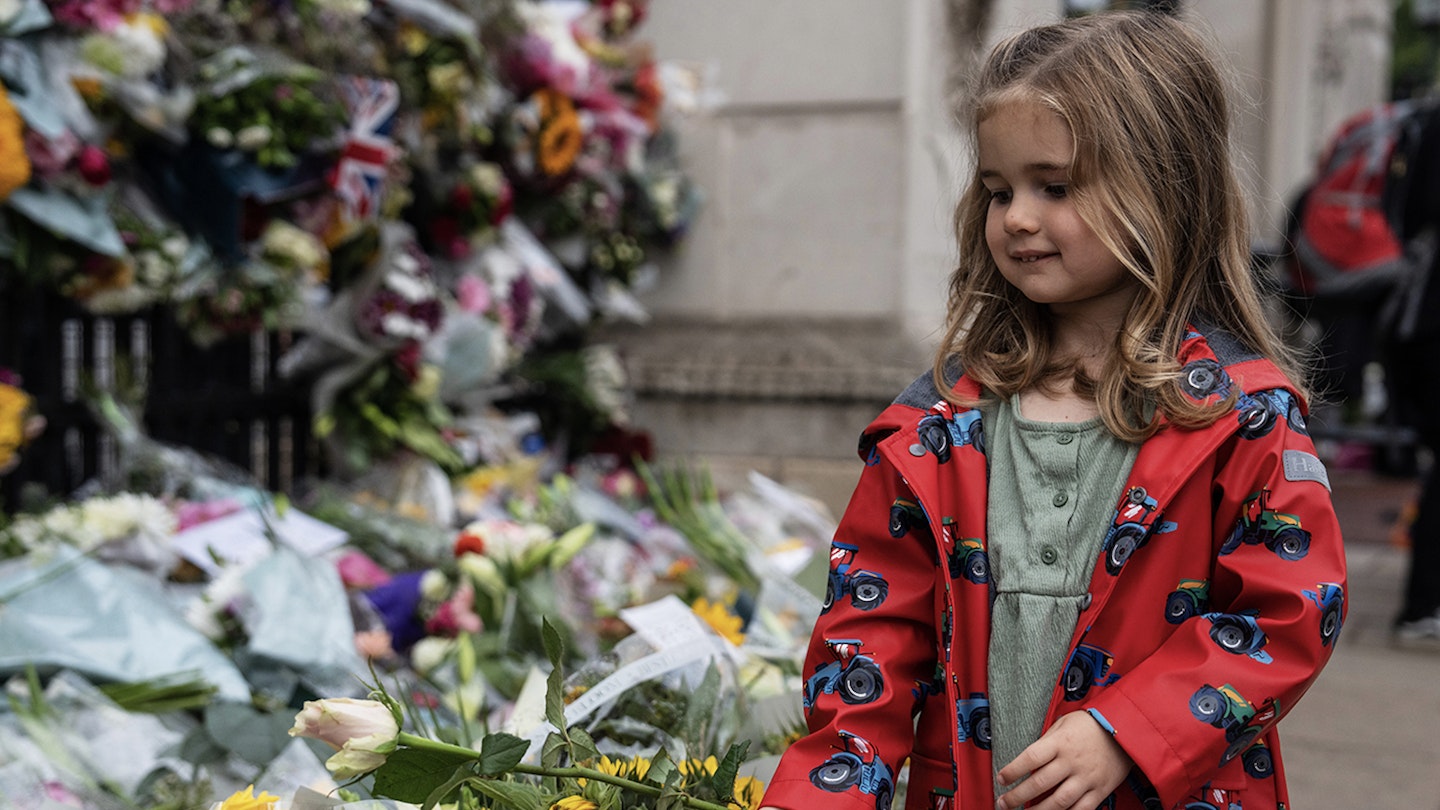Since we heard the sad news that Queen Elizabeth II has died, we’ve been experiencing an unchartered period in our own lives. Things have changed and we have all been plunged into mourning ahead of the Queen's funeral. This can be distressing for adults but confusing for children, too. Stevie Goulding, Parents’ Helpline Manager from Young Minds UK has some tips about negotiating the next few weeks together.
Accept that children will be affected
Like any major event, our kids will feel the impact. Stevie says, “The death of the Queen will be the first time young people have experienced national, and indeed international mourning of this scale, and therefore it is understandable that feelings of uncertainty, anxiousness and sadness may arise in the coming weeks.”
Children might panic about their own elderly relatives, or sadness about the loss of a loved one could re-surface. Ask them how they feel. Stevie recommends listening, comforting and reassuring. “The loss of the Queen may trigger worries in young people about their own loved ones or unsettle them if they have experienced a loss. It is really important to check-in with your child to explore how they are really feeling and avoid making assumptions about what they might be experiencing. Parents should take the time to listen to their child, acknowledge that however they are feeling is totally expected, given the circumstances, and reassure them that they are there if ever they want to chat or need a hug.”
Change in routine
As we move through the period of national mourning, it’s inevitable that our routines will alter. Perhaps children’s sports or activities have been cancelled, or their favourite TV shows replaced with royal coverage. Radio shows are presented in sombre voices and sad music is played. It’s natural that children may not understand this change in usual patterns.
Stevie recommends listening to our frustrated children and reiterating that these changes are happening for children up and down the country: “Parents should validate any feelings of disappointment or frustration within their child, but also take time to explain the national mourning period in which everyone will be experiencing throughout the UK and the reasons why. This can help young people to feel like they are less on their own and be more understanding of the changes to their usual routines over the next few weeks.”
There are practical things you can do, too. If little ones can’t watch their usual favourites on TV, use another device if possible. If the sad mood being broadcast feels too much, switch to an uplifting song you can both enjoy.
Speak clearly
As our kids watch or hear coverage, some of the language used can be confusing. While it might seem a bit brutal, experts believe that being direct is best for children. Stevie explains, “Parents ultimately want to protect their child, and may find it difficult to navigate conversations about death with their child. It is however really important that parents use clear language.”
Trying to soften the news doesn’t always give a clear message: Stevie says it’s preferable to keep your expressions simple: “Parents may find it difficult to say the words ‘died’ or ‘dead’, and might want to use softer expressions such as ‘gone to sleep’ or ‘passed on’. These expressions can be confusing for younger children, as they may believe the person will come back or become fearful of falling asleep themselves.”
Find answers together
The death of Queen Elizabeth II marks a moment for us all and one we may not be able to explain immediately. Stevie recommends being honest about this and using this time as an opportunity to learn together. “For many young people this may be their first experience of death, and the first funeral that they might observe. Parents should use this event as a learning experience with their children, and gateway to discussing difficult topics such as death, since this will help them to respond to and overcome difficulties with bereavement in the future.”
Rather than pretending to have all the answers, look up reasons for the various ceremonies and protocols together and use the many resources available to explain what is happening and when. Our children are living through a moment in history, but their uncertainty will be eased if they can share it with their parents.
Leave space for your own sadness
Plenty of us are feeling sad at the death of HM the Queen, which is a completely natural reaction. Perhaps her death reminds us of parents or grandparents who are no longer with us and triggers emotional responses. While you might feel you should hide these emotions from your children, Stevie reminds us that our children are looking to us to set an example: “Lots of parents will also be impacted by the death of the Queen, and they should not feel guilty nor completely hide how they are feeling about the situation. Parents act as huge role models for their children, therefore expressing emotions and talking about their own feelings can help young people to open up about their own experiences and be reassured that it is okay to not feel okay.”
